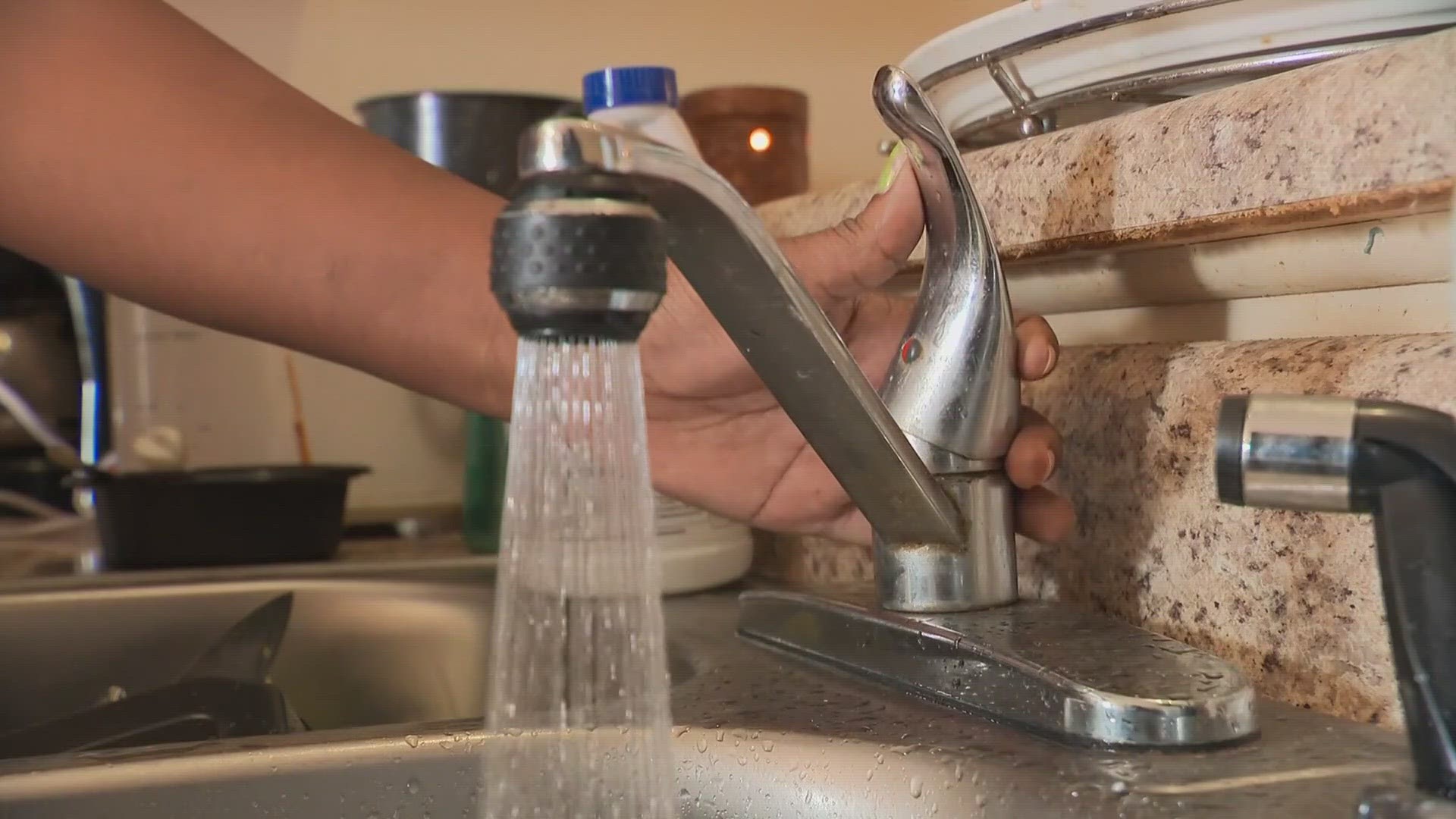ST. LOUIS — New federal guidelines are prompting cities everywhere to take action when it comes to lead exposure. St. Louis leaders are concerned about the dangerous metal creeping up in drinking water.
Lead can pop up dust, soil, paint, and even water service lines. This October, federal rules go into effect to make sure the dangerous metal isn't lurking in your drinking water.
The city is routinely testing for that, but city officials said they could use your help.
The City of St. Louis said historic data shows of some 113,000 water service lines, 9,000 are believed to have lead.
For more than half of the total water lines, city officials don't know whether there's lead or not. That's where you come in.
Soon, some city residents may get a survey in the mail, asking what type of material is in your pipes and whether the service lines have ever been replaced.
"If you're in an older house, you may have a house that has a lead pipe bringing water in, and especially if that pipe is disrupted in some way, you have repairs or something, that allows lead to to leach out of the pipe into the drinking water. said Dr. Josh Arthur of SSM Health. "(It can be) in a house or school, or any other area that has those types of pipes."
The pediatrician is most concerned about how lead exposure affects children. He said typically, adults may get sick for a while, but he said lead doesn't tend to stay in their bodies as it does in kids.
"They have rapidly developing brains and bodies, which means that lead can become incorporated into their bones and into their brains and stored actually for long periods of time because they're growing in a way that an adult is not," Dr. Arthur said.
"For more than 20 years, the city has been treating its water with an optimized corrosion control treatment strategy, which minimizes the absorption of lead from customers' service lines or internal plumbing," a city spokesperson said in a statement. "The Water Division routinely tests city water and this treatment has been shown to be effective in keeping lead levels in customers' homes well below the U.S. Environmental Protection Agency action level."
If lead is getting into your drinking supply, the city wants to help homeowners replace their water service line. St. Louis applied for federal assistance to make that happen.
The city shared the following information to help residents reduce exposure in drinking water:
- Run the cold water to flush out lead.
- If a faucet has not been used for several hours, allow the water to run at the tap for 15 to 30 seconds or until it becomes cold and reaches a steady temperature before using it for drinking or cooking. This flushes lead-containing water from the pipes.
- The water you run from drinking water taps does not have to be wasted; you can use this water for cleaning purposes or watering plants. You may want to keep a container of drinking water in your refrigerator, so you don't have to run water every time you need it.
- Do not drink or cook with water from the hot water tap, as lead dissolves more easily in hot water.
- Use cold water for cooking and preparing baby formula. Do not use water from the hot water tap to make baby formula.
- Do not boil water to remove lead. Boiling water will not reduce lead content.
If water testing has shown you have elevated lead in your drinking water, you may want to consider purchasing bottled water or a water filter. Read the package to be sure the filter is approved to reduce lead, with NSF/ANSI 53-2021 labeling, or contact the National Sanitation Foundation at 800-673-8010 for information on performance standards for water filters. If you choose to install a lead-removal filter, be sure to maintain and replace the filter device according to the manufacturer's instructions to protect water quality.
Additional information on lead in drinking water, testing methods, and steps you can take to minimize exposure is available at http://www.epa.gov/safewater/lead or at https://www.stlwater.com/water-quality/lead-and-water.php.

